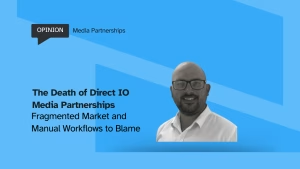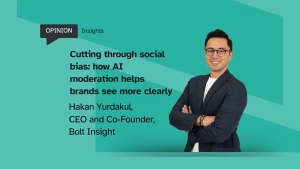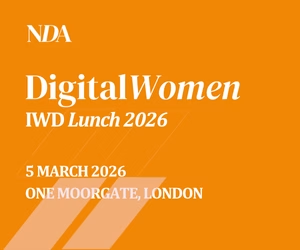Nicole Storey is the Head of Experimentation at Hookflash. With over eight years of experience in the industry, Nicole is passionate about delivering insights into website performance, and running experimentation programs to continually iterate, learn and drive conversions for brands. Nicole’s passion has been recognised, winning the Rising to the Top – Technology award at Campaign’s Inspiring Women event, and being named in Media Week 30 Under 30 2024.
What is the biggest opportunity for women in your sector of the digital industry today?
One of the most exciting aspects of the digital industry is that it’s constantly evolving which brings a big opportunity for women to become a part of this change. With new technologies and disciplines emerging every month, there is an opportunity for women to step in, lead and shape these fields. For areas that are still in their infancy, many of the underlying biases that we unfortunately see quite regularly in the workplace have yet to be engrained, leaving more room for diversification from the start. Women who step into these roles now will have the chance to become leaders in the industry and drive a positive, diverse change.
What is the biggest challenge to you as a woman in the digital industry and how are you overcoming it?
Despite the progress, challenges still exist, particularly in terms of female representation in more technical roles. For example, when I recently started recruiting for a front-end developer to join our experimentation team at Hookflash, I couldn’t believe that only 10% of CVs were from female applicants.
I think one way to try and start to overcome this is to engage more women from a younger age, and try to spark their interest in digital and technical fields early on. Reflecting on my own experience, when I started my computer science degree at university 12 years ago (gosh, time flies!), the gender imbalance was so glaring, even then. We need to continue advocating for programs that encourage girls and young women to pursue careers in technology, and on top of this, we need to make sure they have the mentorship and support to continue through to senior roles.
What three things could employer companies do to make the digital industry better for women?
- Training programs – As I mentioned, unfortunately we are still dealing with deep-rooted gender biases in some roles. To try and help and improve this for women, I think that strong training programs are a must, to allow females to upskill in these roles without having prior experience or specific university degrees. At Hookflash, we have been working to build out training programs of our own, especially for graduates, to help with easier entry into the field for woman.
- Flexible working – While I believe flexible working arrangements are important for everyone, I recognise that they are particularly crucial for those balancing parental responsibilities. Although I don’t have personal experience, I’ve listened to, observed and upskilled myself on the topic of raising a family, particularly as a mother, to allow me to understand how vital it is to offer flexible working options, parental leave policies, and other benefits that support work-life balance. As a woman in leadership, I’m committed to staying informed about all the factors impacting women in the industry—not just those that directly affect me at this stage of my career.
- Inclusive Hiring Practices – Companies need to actively seek out and encourage female candidates, especially for technical or other under-represented roles. This could involve partnering with organisations focused on women in tech, setting up mentorship programs, or creating internships specifically designed to attract and develop female talent.
What support structures and organisations are most important and effective to you as a woman in the digital industry?
There are growing networks of support available and I cannot encourage women enough to reach out to as many people as they can (LinkedIn is a great starting point) to find their network because they can bring such a strong feeling of belonging and empowerment. If a relevant support group doesn’t exist, why not take the lead and establish one? It really feels like year on year that there is a growing network of women eager to uplift one another, and this collective power is incredible to get involved in.
One that I must shout out which is relevant for anyone else in the world of experimentation is initiatives like “Women in Experimentation” where there is a Slack community with over 1000 members. Although it might seem like such a simple concept, it’s more than that and provides a space for women to share their opinions, collaborate on opportunities, and to help and support each other.
What is the biggest misconception about women in the digital industry?
Despite what I’ve shared so far throughout this article, I do think that a common misconception about women in the digital industry is that the onus should be on women to try and tackle the issues alone. While it is of course so important that women get involved, it’s equally important to engage men within these conversations. Many senior positions are still held by men and without their active support and advocacy, progress will be slower.
The narrative needs to shift from simply increasing female participation to also encouraging men to champion gender diversity. We need male allies who are committed to fostering an inclusive environment and who will advocate for the advancement of women in the digital space. Real change will come when everyone – regardless of gender – is equally invested in achieving gender parity.










